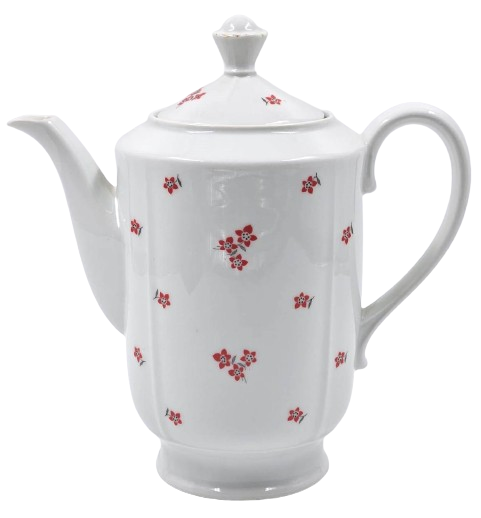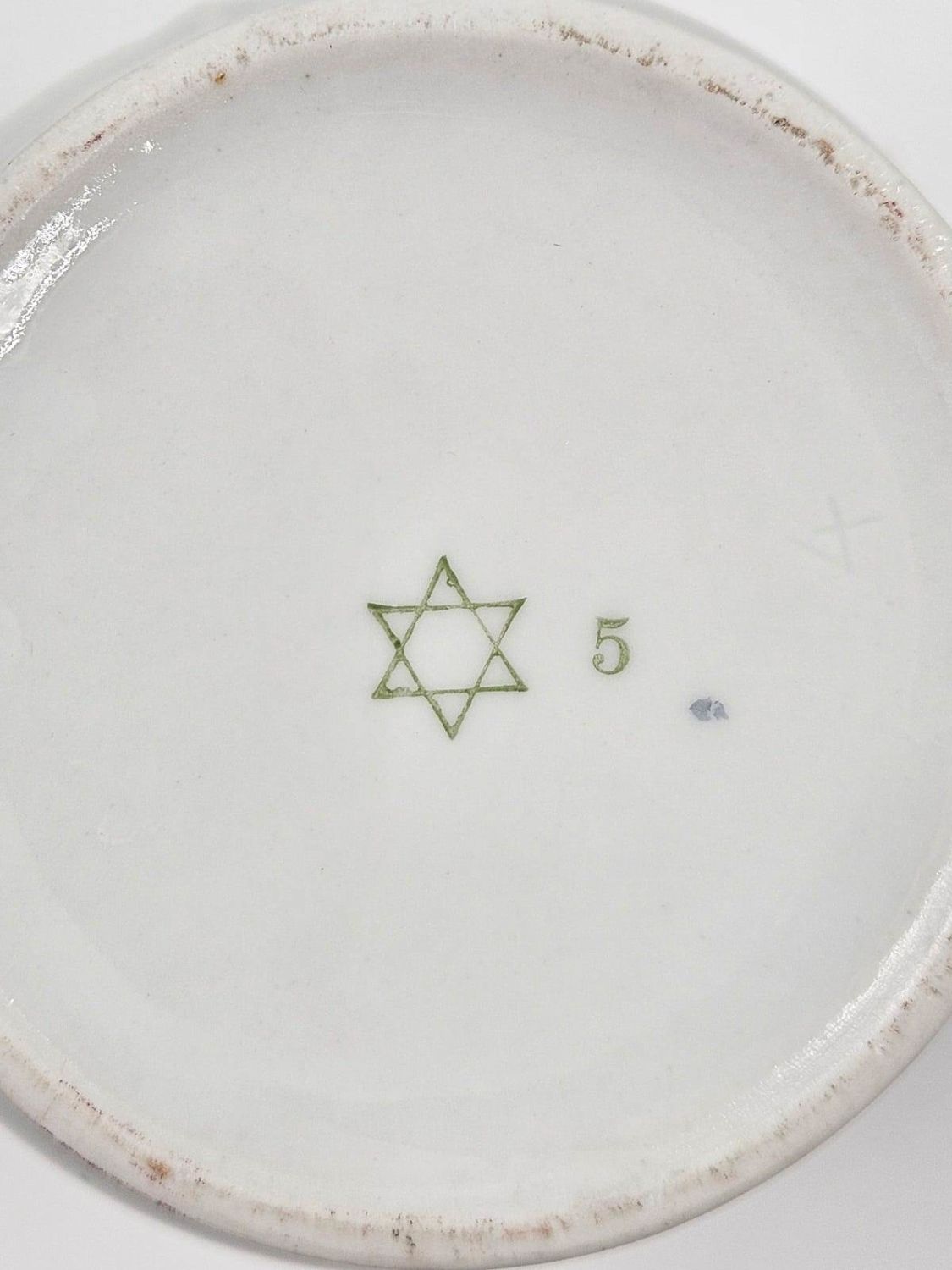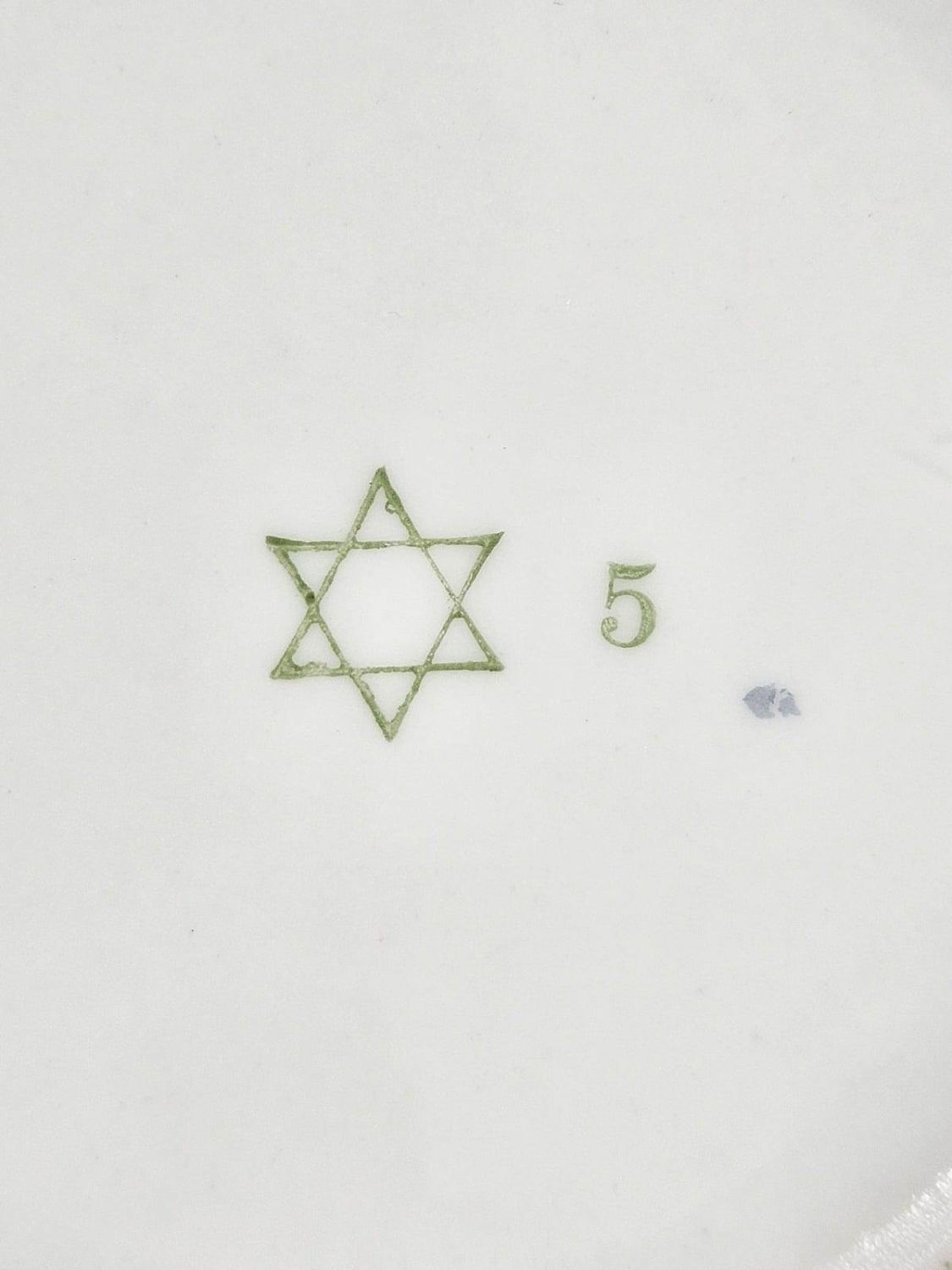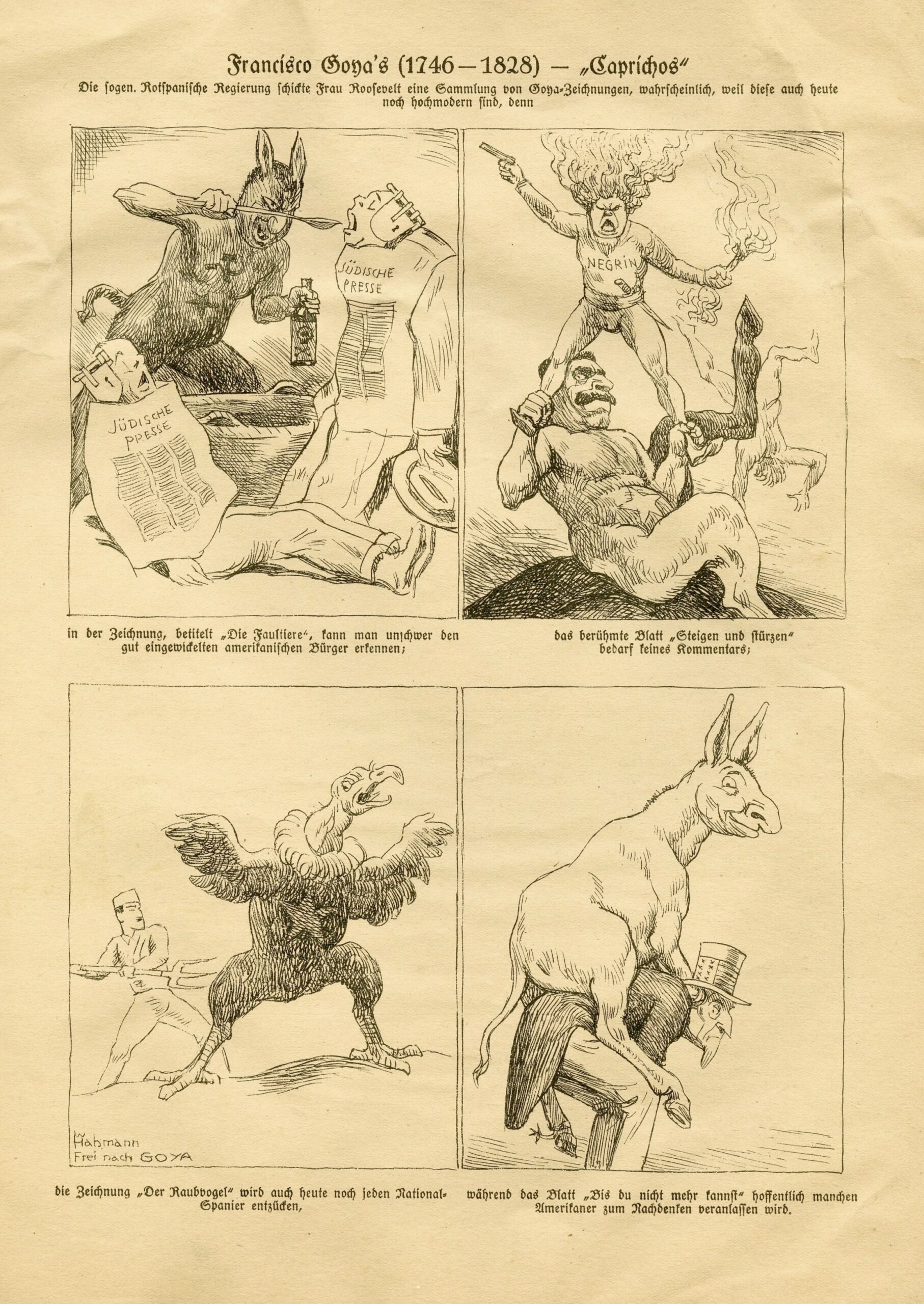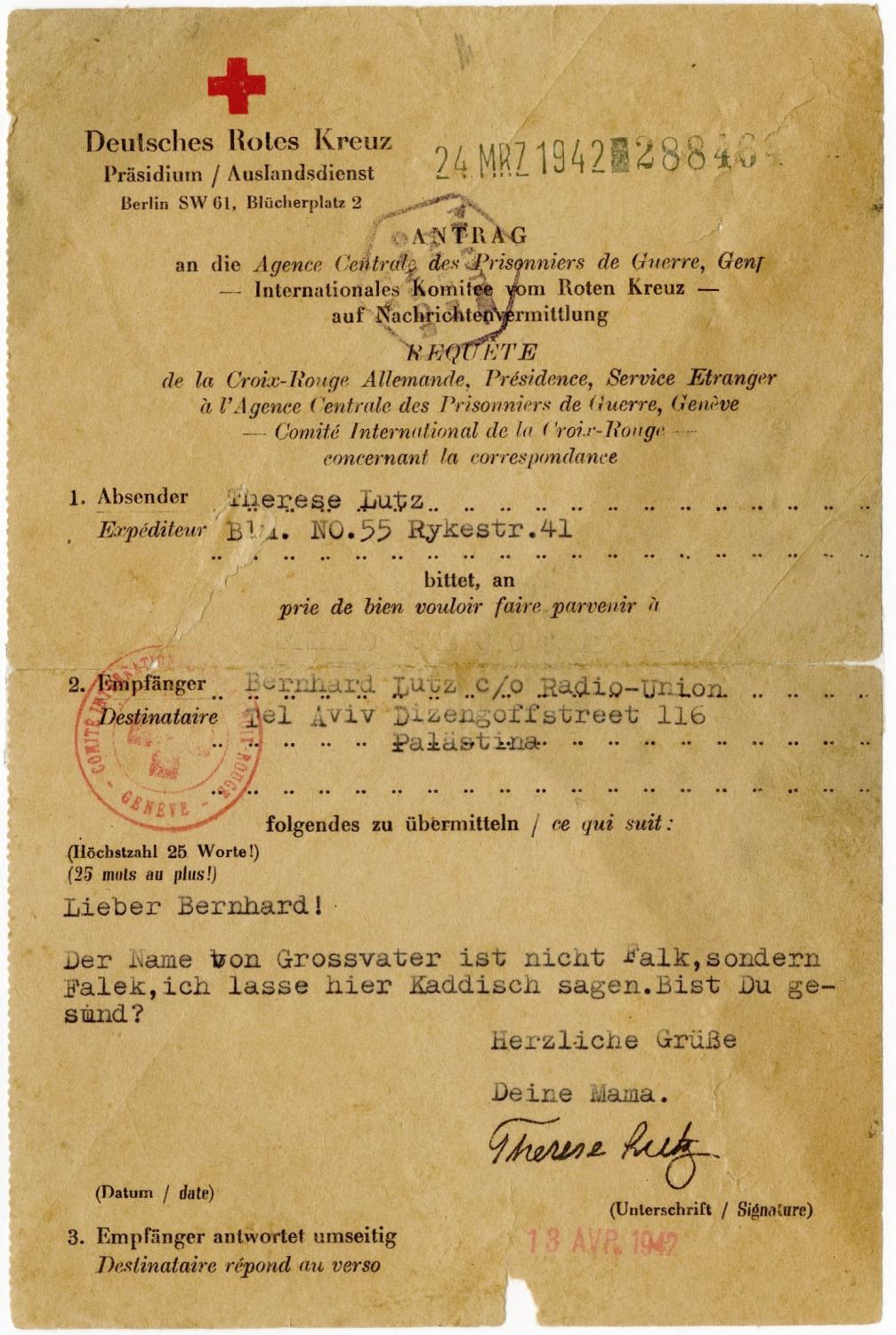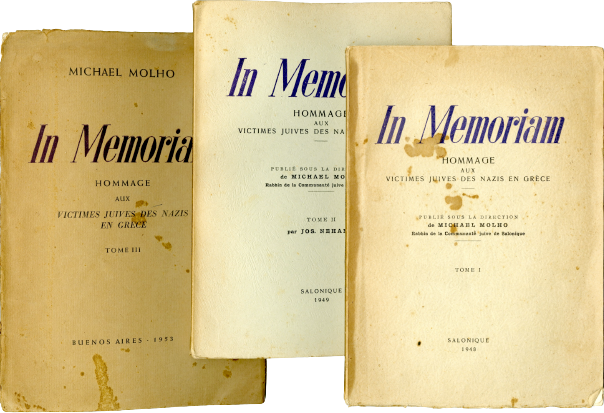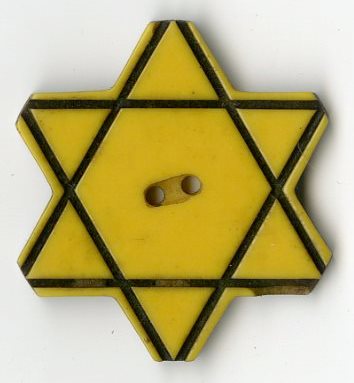Impressive Porcelain vase decorated with flower paintings. At the base of the vase is a Star of David stamp of a Jewish factory in Nazi Germany. Luxurious sets of this type, made of high-quality porcelain and marked with a Star of David stamp, were manufactured in Jewish factories in Nazi Germany in response to the anti-Semitic decree that forbade Jews to buy luxury porcelain utensils for a short period of a few months in 1938 (see below). Germany, 1938.
The decree forbidding Jews to buy luxury items was issued on November 12, 1938, following Kristallnacht, and the man who signed it was Hermann Göring, who at that time was the man responsible for supervising the Nazi economy and carrying out Hitler's anti-Semitic policies. The decree forbade Jews to purchase any luxury item, including jewelry, furs and expensive clothing. Jews caught violating the prohibition were fined and even imprisoned. The purpose of the prohibition was to place Jews as second-class citizens, and to make Jewish homes appear poor compared to those of the Germans, as part of the Nazi policy to place a barrier in all areas of life between the Aryan and Jewish populations, and to continue to isolate and persecute the Jewish community and make it difficult for it to maintain a high standard of living. As a result, the Jews themselves were forced to produce porcelain vessels, which they were obliged to mark with a Star of David, proving that the vessel was Jewish-made. At the same time, out of an economic desire to preserve the Jewish purchasing power of porcelain despite the decree, the factory of the non-Jew "Thomas Porzellan" founded in 1903, also began marking with a Star of David the German produce he sold to the Jewish population. This enabled generally upper-class Jewish families to maintain the standard of living they were accustomed to without violating the new prohibition amended by the Nazis. These vessels with the marking of the Jewish Star of David are extremely rare today (and are not found even in the archives of the largest Holocaust commemoration museums, see below), since this "easement" in restriction of marking Jewish porcelain vessels with the Star of David lasted only a few months!, and already at the end of that year a new anti-Semitic regulation came into force on the closure of Jewish factories altogether, and Jews were completely forbidden to manufacture by themselves, In order to leave them penniless, and the tools marked with the Star of David were also banned from production. Within a few weeks, as a result of the escalation of the decree and persecution of Jewish businesses by SS officials, the Jewish factories were closed one by one. The first porcelain factory to close down was the Rosenthal family's well-known factory "Rosenthal Porcelain" - the factory was founded in Selb, Germany by the Jewish businessman Philip Rosenthal and for years produced tableware, figurines and decorative objects. The Rosenthal Porcelain Factory closed in 1938. The Nazis confiscated the factory and forced the Jewish workers to leave. The factory was then reopened as a non-Jewish factory in 1939. Also the Goldscheider Porcelain factory, founded in 1863 by the Jewish brothers Ignaz and David Goldscheider, was forced to close its doors in 1939. The Nazis confiscated the factory and forced the Jewish workers to leave. This factory was also reopened as a non-Jewish factory in 1940. This was also the fate of the Jewish porcelain factories: Villeroy & Boch in Mettlach (Germany), Goldscheider Porcelain (Vienna), Hutschenreuther in Selb (Germany) - all Jewish porcelain factories suffered the same fate, they were closed following the new order and replaced by non-Jewish workers, and in fact the production line of Jewish porcelain ceased altogether.
(Of course, large independent Jewish manufacturing companies in other industries were also shut down by the Nazis one after the other that year. For example, the electrical engineering company AEG, founded by the Jewish industrialist Emil Rathenau, closed down in 1938. The large department store chain Kaufhaus Tietz of Jewish businessman Hermann Tietz was forced to close in 1939. The company for the manufacture of rubber and leather products of the Jewish businessman Freudenberg closed in 1941 and its owner was thrown into a concentration camp, the large textile company Salomon Wolff & Co closed in 1942 and the Nazis threw its owners into a concentration camp, and the large sewing machine company of the Jew Isaac Singer closed in 1943 and the Nazis threw its owners into a concentration camp. It is also known about the German Jewish ceramic artist Margaret Heymann, who was also forced to leave Nazi Germany and continue her production in England).
It is important to note that the Jews did not despair and some continued to produce porcelain in the occupied territories of Nazi Germany - it is known about the group of Jewish artists known as the Krakow Porcelain Workshop - a group of Jews who fled to Krakow from nearby Polish cities, and made porcelain ware underground in the early 1940s. They worked in a small underground workshop, and used occasional materials. The tools they created were beautiful and delicate, And the workshop operated until 1944. But even this workshop was eventually discovered by the Nazis, and the artists who worked there were arrested and imprisoned.
In the Museum of the Ghetto Fighters' House in the Western Galilee, which was established by Holocaust survivors, there is a vessel stamped with the Star of David stamp that was manufactured in Nazi Germany in the short time that the Nazis allowed the Jews to produce themselves, such as the vase before us. The plate appearing there (Record No. 1115) was donated to the museum by Batya Ackerman. And it was used in the home of Batya's mother, Ilse Yaakov née Stern (see more details there). There is the description: "A porcelain plate decorated with floral patterns. The base is marked by a Star of David. This plate is the only item left of a fancy porcelain set. Such Luxurious sets of this type, made of high-quality porcelain and marked with a stamp in the shape of a Star of David were manufactured in Jewish factories in Nazi Germany in response to the antisemitic decree banning Jews from purchasing such items", And see there that they brought recently the opinion of an art dealer who claims that he knows vessels stamped with the Star of David even before the Nazi decree alongside the testimony they received from Mrs. Ackerman..
Height: 25 cm. Diameter including the handle: 25 cm. Cracks in the lid. Very Good Condition. The number next to the Star of David at the bottom of the tool refers to the size of the vessel.

